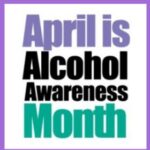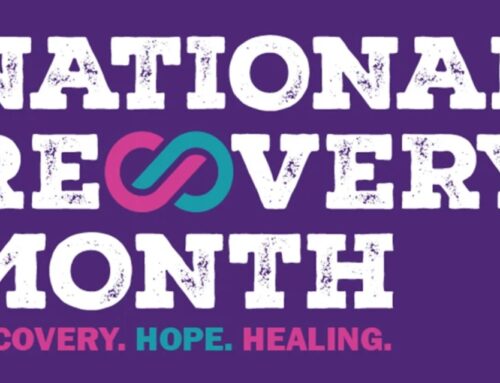 Alcohol has varying effects on your body. Even one drink can trigger physiological changes in your brain, heart, liver, and more. After a sustained period of heavy drinking, these changes can lead to long-term health complications and one of the nation’s leading causes of death: alcohol use disorder (AUD).
Alcohol has varying effects on your body. Even one drink can trigger physiological changes in your brain, heart, liver, and more. After a sustained period of heavy drinking, these changes can lead to long-term health complications and one of the nation’s leading causes of death: alcohol use disorder (AUD).
What is Alcohol Awareness Month?
Alcohol Awareness Month, observed every April, is a national campaign that aims to increase public understanding of the dangers of alcohol misuse, reduce stigma around seeking help, and highlight the importance of prevention, treatment, and recovery support.
For the 2025 observance of this event, we’re breaking down some facts about the disease and drinking in general.
- Alcohol is among the most commonly misused addictive substances, second only to tobacco use (1). Over 10% of American adults meet the criteria for AUD (2).
- Alcohol is a depressant, meaning it slows down brain activity. Some people experience worsening depression when they drink alcohol (3).
- AUD has a genetic component, meaning if you have close family members who have struggled with addiction, you’re at risk for battling the disease as well (4).
- In most age groups, men binge drink more frequently and at higher intensities than women. However, according to a recent study, young women’s alcohol consumption has outpaced young men’s consumption for the first time (5).
- Among people with an AUD, the rate of death is 50% to 100% higher for women than men; this includes suicide, alcohol-related accidents, heart and liver disease, and stroke (6).
- Excessive alcohol use is one of the leading preventable causes of death in the U.S., claiming roughly 178,000 lives each year (7).
- For those who have died due to alcohol-related causes, data show that excessive drinking shortened their lives by an average of 24 years (8).
- Adolescents who drink alcohol before age 15 are more likely to develop alcohol dependence in adulthood than those who start drinking at or after age 21 (9).
- AUD often leads to alcohol withdrawal syndrome (AWS) which causes hallucinations, seizures, and sometimes death. It’s imperative that people seeking to detox from alcohol do so at a medically monitored treatment center with 24-hour medical staff (10).
- It’s a myth that coffee helps you sober up quickly. While coffee may help you feel alert and awake, the only way to sober up is to allow your body to break down the alcohol in your system (11).
Our society has a complicated relationship with alcohol. It’s a huge part of people’s lives, with many social circles getting together for beers after work, or with cocktails flowing freely at holiday gatherings. While a glass of wine can be a simple moment for some, there are many people actively struggling with alcoholism and alcohol dependency every day. To observe Alcoholism Awareness Month, learn about the signs and symptoms of AUD and alcohol dependency. You could save a life!
If you or a loved one is struggling with alcohol addiction, call the New England Recovery Center today at 1-877-MyRehab and speak to an admissions counselor today, or contact us here. Help is here!
Citations
- https://www.health.harvard.edu/addiction/alcohol-abuse
- https://www.niaaa.nih.gov/alcohols-effects-health/alcohol-topics/alcohol-facts-and-statistics/
- https://americanaddictioncenters.org/alcohol/risks-effects-dangers/depression
- https://bermancenteratl.com/is-alcoholism-genetic/
- https://wiareport.com/2025/06/study-finds-young-women-are-now-binge-drinking-more-their-male-peers/
- https://www.cdc.gov/mmwr/volumes/73/wr/mm7308a1.htm
- https://www.cdc.gov/drink-less-be-your-best/facts-about-excessive-drinking/index.html
- https://www.cdc.gov/alcohol/facts-stats/index.html
- https://www.niaaa.nih.gov/alcohols-effects-health/niaaa-middle-school/too-soon-too-dangerous
- https://www.healthline.com/health/alcoholism/withdrawal
- https://www.medicalnewstoday.com/articles/321103










